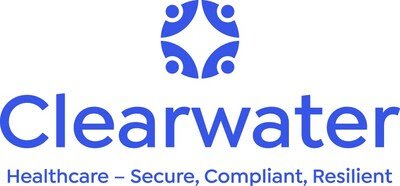Clearwater and Google Cloud: A New Era in Cybersecurity for Healthcare
In an age where cyber threats loom larger than ever, Clearwater, a dedicated provider of cybersecurity and compliance solutions for the healthcare sector, has taken a significant step forward. The company recently announced a collaboration with Google Cloud, aiming to bolster its cybersecurity offerings through the integration of advanced threat intelligence. This partnership is set to enhance Clearwater’s Managed Security Services and Security Operations Center (SOC), providing healthcare organizations with the tools they need to defend against increasingly sophisticated cyber threats.
Proactive Defense with Enhanced Threat Intelligence
As ransomware attacks, supply chain vulnerabilities, and nation-state threats escalate, organizations must prioritize high-fidelity, real-time threat intelligence. Traditional defenses are no longer sufficient; threat actors are quick to exploit zero-day vulnerabilities and novel attack paths. Clearwater recognizes this pressing need and is committed to equipping its clients with the insights and agility necessary to stay ahead of attackers.
By embedding Google Threat Intelligence—encompassing resources like Mandiant, VirusTotal, and Google’s internal intelligence—into its Managed Security Services and SOC, Clearwater aims to provide actionable insights that empower healthcare organizations. This proactive approach not only enhances security measures but also ensures compliance with regulatory obligations, ultimately safeguarding patient safety.
Key Capabilities for Robust Cyber Resilience
Clearwater’s Enhanced Threat Intelligence Service boasts several key capabilities designed to fortify cyber resilience:
-
Real-Time Enrichment from Google Threat Intelligence: This feature allows Clearwater to leverage the latest threat data, ensuring clients are informed of emerging threats as they occur.
-
Tight Integration with Clearwater’s MSSP/SOC: The collaboration facilitates automated correlation of threat data, significantly reducing the Mean Time to Detect (MTTD) and Mean Time to Respond (MTTR) to incidents.
-
Healthcare-Specific Intelligence: Clearwater contextualizes threat intelligence to focus on Protected Health Information (PHI) and Personally Identifiable Information (PII) attack vectors, ensuring that the unique needs of healthcare organizations are met.
-
Advanced Threat Hunting: Utilizing Google Cloud’s threat graph and YARA-based Indicator of Compromise (IOC) matching, Clearwater enhances its threat-hunting capabilities, allowing for proactive identification of potential threats.
-
Regulatory Alignment: The service aligns with essential regulations such as HIPAA, NIST Cybersecurity Framework (CSF), and Cybersecurity Maturity Model Certification (CMMC) Level 2+, ensuring compliance across the board.
- Tailored Solutions for Specific Sectors: Clearwater’s offerings are specifically designed to meet the needs of both healthcare and defense industrial base sectors, recognizing the unique challenges they face.
As Brian McManamon, General Manager of Clearwater Managed Security Services and President of Clearwater’s Redspin division, aptly stated, “With the growing frequency and sophistication of cyberattacks on healthcare and critical sectors, organizations need a threat intelligence capability that is not only powerful but deeply integrated into their operations.” This partnership with Google Cloud exemplifies Clearwater’s commitment to providing a robust cybersecurity framework that enables faster detection, informed response, and improved cyber resilience.
Conclusion
The collaboration between Clearwater and Google Cloud marks a pivotal moment in the fight against cyber threats in the healthcare industry. By integrating advanced threat intelligence into its Managed Security Services, Clearwater is not only enhancing its cybersecurity capabilities but also ensuring that healthcare organizations can navigate the complex landscape of cyber threats with confidence. As the digital landscape continues to evolve, partnerships like this will be crucial in safeguarding sensitive information and maintaining the integrity of healthcare systems.


